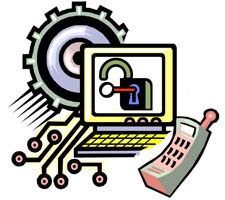I want my political leaders to do a lot of things for me. I want them to manage the economy; to deliver good educational programs; to provide health care, pensions, good highways, museums, parks, etc. But, often not considered—I want the politicians to be leaders of “character.” We can argue about how effectively one political party supports health care or highways, and we can differ in opinions about who is a good politician or not. Unfortunately, however, it’s pretty clear that most politicians don’t provide us with behaviour representing good character. This is especially true during an election campaign.
I think that as educators and parents we have a problem. Politics do not emphasize civility. Civility is behaving politely, calmly and reasonably even during heated debates. Civility means that we do not engage in personal attacks or harassment. Civility means we should treat each other with consideration and respect.
Yet our politicians speak in very disrespectful ways to, and about, their opponents. They stretch the truth and pretend ignorance when their misrepresentations are pointed out. They would have us believe that their opponents could ruin the country. They support “attack” ads. They continually represent bad character.
We teach our children/students to speak civilly to one another. We teach them to problem solve when relationships come into conflict. We have honour codes in schools emphasizing respect and consideration towards others. At home we don’t allow our children to speak disrespectfully to us as parents. We teach students about tolerance of opposing points of view. We work very hard in schools to shape a civil environment. We want our homes to be civil as well.
How are we to explain to our children/students that our leaders do not have to adhere to the same expectations that are required of us as children, students, co-workers, spouses, employees, etc? Do we say: “that’s politics?” Do we tell our children that this is not the way one should behave? One student pointed out to me that if students behaved the way that politicians behave they’d be sent to the office for a discussion about appropriate behaviour and if that behaviour persisted they might face disciplinary actions.
If the lack of civility in politics bothers me and if I want good characters to lead our country, whom do I vote for? I will exercise my right to participate in this democracy, but this ethical dilemma is challenging.—John Gordon, School Counsellor


 Earlier this month our faculty and parents had an opportunity to hear from well-known American educator, Alan November. Years ago he predicted that the most pronounced changes in generations were coming to education because of advances in information technology – both hardware and software. Students now have the capacity to collaborate with peers across the room and also around the world. As a result, students are empowered more than ever before.
Earlier this month our faculty and parents had an opportunity to hear from well-known American educator, Alan November. Years ago he predicted that the most pronounced changes in generations were coming to education because of advances in information technology – both hardware and software. Students now have the capacity to collaborate with peers across the room and also around the world. As a result, students are empowered more than ever before.